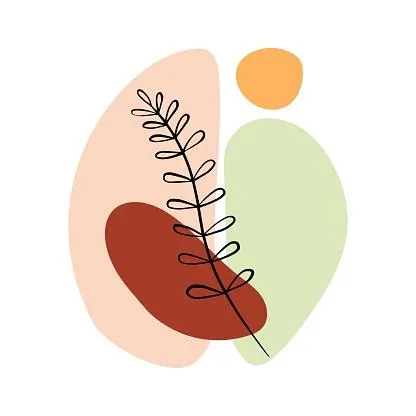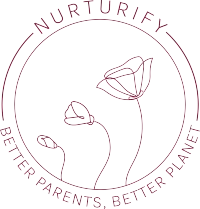Parenting is a funny thing. Through centuries, nobody has ever known for sure how to do it right. One thing is certain, however: as parents evolve in their humanity, their connection with their children also evolves, opening new possibilities.
Welcome brave Parent !
Better Parents, Better Planet is your go-to online resource, offering essential information and educational content to empower you in your parenting journey. We provide the tools and insights you need to grow as a person and deepen your connection with your children.

Understanding the Nervous System and Its Role in Parenting
Understanding the Nervous System and Its Role in Parenting
Introduction: The nervous system, a sophisticated communication network, is fundamental to our body's ability to understand and react to the world around us. By looking into the workings of our nervous system, particularly through the lens of Polyvagal Theory, we can gain invaluable insights into how we interact with our children and the impact of our own stress responses on parenting.
The Foundation of Nervous System Science: The nervous system, comprised of the brain, spinal cord, sensory organs, and the interconnecting nerves, is the body’s control hub. Neuroception, a crucial process within this system, enables us to distinguish safety from danger. Our autonomic nervous system, without conscious thought, translates cues from our environment, affecting how we respond to situations and people. This understanding is at the core of the Jai Institute's approach, emphasizing the importance of being attuned to our autonomic system to make conscious parenting choices.
The Impact of Stress on Parenting: When stress hijacks our nervous system, we often become reactive. This reaction is especially pronounced if our upbringing involved chronic stress, which imprints on our nervous system, causing us to misinterpret safe situations as threatening. For example, a child's meltdown might instinctively feel like a dangerous trigger, prompting a fight-or-flight reaction.
Finding Calm in the Chaos: Developing an awareness of our internal physiological states is crucial for accessing calm and making conscious choices. If parents misinterpret their children's behaviors due to an unregulated neuroceptive system, they might resort to ineffective parenting patterns such as authoritarian (power over) or permissive (power under) strategies. These responses can escalate conflicts rather than resolve them.
Leveraging Polyvagal Theory for Better Parenting
Stephen Porges' Polyvagal Theory outlines the three pathways of the autonomic nervous system:
The Green Pathway (Ventral Vagal State): When in this state, we experience social engagement, safety, and connection. As parents, accessing this state allows us to respond with empathy and understanding, crucial for nurturing secure attachments with our children.
The Red Pathway (Sympathetic State): Known as the mobilization phase, this is our fight or flight response. Recognizing when we're in this state can help us manage our reactions and avoid responding with unnecessary aggression or anxiety.
The Blue Pathway (Dorsal Vagal State): Characterized by immobilization, or the freeze response. By understanding this state, parents can work towards re-engaging with their social nervous system and avoid withdrawing from interactions.
Practical Steps for Parents
Cultivate Awareness: Regularly check in with your body to recognize stress signals. This practice can prevent reactivity and foster a calm approach to parenting.
Strengthen Social Engagement: Prioritize building strong, reliable relationships with your children to create a foundation of trust and emotional safety.
Understand Your Responses: Acknowledge the pathways you and your children are in during emotional situations. This knowledge helps tailor your responses to provide the support your child needs.
Understanding and regulating our nervous system holds the key to effective and empathetic parenting. By learning to navigate the complex landscape of neuroception and the autonomic nervous system, we can better support ourselves and our children. In this journey, resources like those provided by the Jai Institute can guide parents in cultivating inner calm, leading to a more harmonious family dynamic. Recognizing and responding to our body’s cues not only improves our personal well-being but also enriches the parent-child relationship, creating an environment where both can thrive.
YOU’RE NOT ALONE. WE ARE HERE TO HELP!
Get in touch with your inner sense of safety and see how much you can enjoy your experience of parenthood.
Join our community of like-minded parents who share your values and are on the same journey.
Exchange ideas, tips, and support to navigate the ups and downs of parenting together.
Say goodbye to feeling lost and pressured
Are negative feelings, mind chatter, or social expectations overshadowing the joy of your role? From now on, you'll know exactly what to do with them! I've got your back!
Better, not perfect!
Dear parent, embrace your journey of growth and progress. Don't fall into the trap of perfectionism.
Compare yourself to NO ONE. Only to the parent you were last week, last month, or last year. Still there may be a moment you perceive as regression. And that wil be a part of growth too :)
There is no limit to growth; no matter how big or small, it always brings benefits!
Finding a balance
Balance is essential for parents, as it ensures their well-being and enables them to be the best version of themselves for their children.
Fell a little out of balance in your daily life as a parent? I'm here to assure you, that this is ALSO an invitation to something precious. And I want to show you exactly how.





